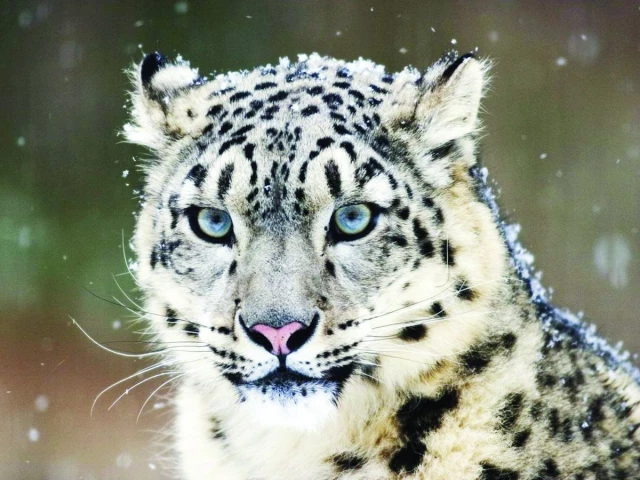Islamabad:
In a groundbreaking moment for the preservation of wildlife, Pakistan has revealed his first scientific estimate of snow leopard population, 167 individuals who place the country at number four globally among snow leopard reach nations. This marks an important milestone in Pakistan’s environmental research and conservation efforts.
The announcement was published under Pakistan Wildlife Protection Awards 2025, organized by the Snow Leopard Foundation in collaboration with the Ministry of Climate Change and Environmental Coordination (MOCC & EC).
The ceremony also included the screening of a documentary entitled “Beyond Borders – The Heartbeat of Chitral Rangers,” showing the harsh realities and victims of those working in remote, high altitude terrain to protect Pakistan’s natural heritage.
Snow Leopard Foundation and MOCC & EC confirmed their obligation to promote conservation surveys and expand the protective effort for snow leopards and other endangered species over Pakistan.
Snow leopards are facing rising threats from habitat degradation, shrinking prey and climate change. Expansion of infrastructure, poaching and conflict with the shepherds continues to jeopardize their survival and make accurate population data important for targeted preservation.
The three countries with higher populations are China, Mongolia and India. China is hosting the largest number of snow -loopards with an estimated 2,000 to 2,500 individuals due to its large mountainous terrain spanning several provinces. Mongolia comes with about 1,000 snow leopards that benefit from its remote and robust landscapes that provide ideal habitats. India ranks the third with an estimated population between 500 and 700, found primarily in the Himalayas regions. These countries play a crucial role in the global preservation of this evasive and threatened species.
Globally, snow leopard population is estimated to be between 3,500 and 7,000 individuals, spread over 12 countries in Central and South Asia. This emphasizes the importance of Pakistan’s role in the survival of this iconic and vulnerable nature.



